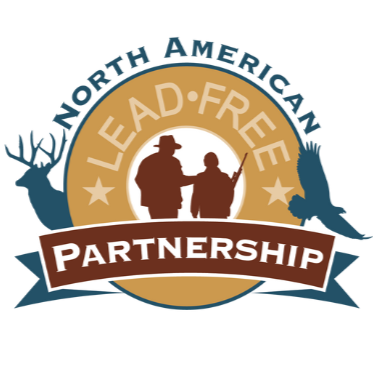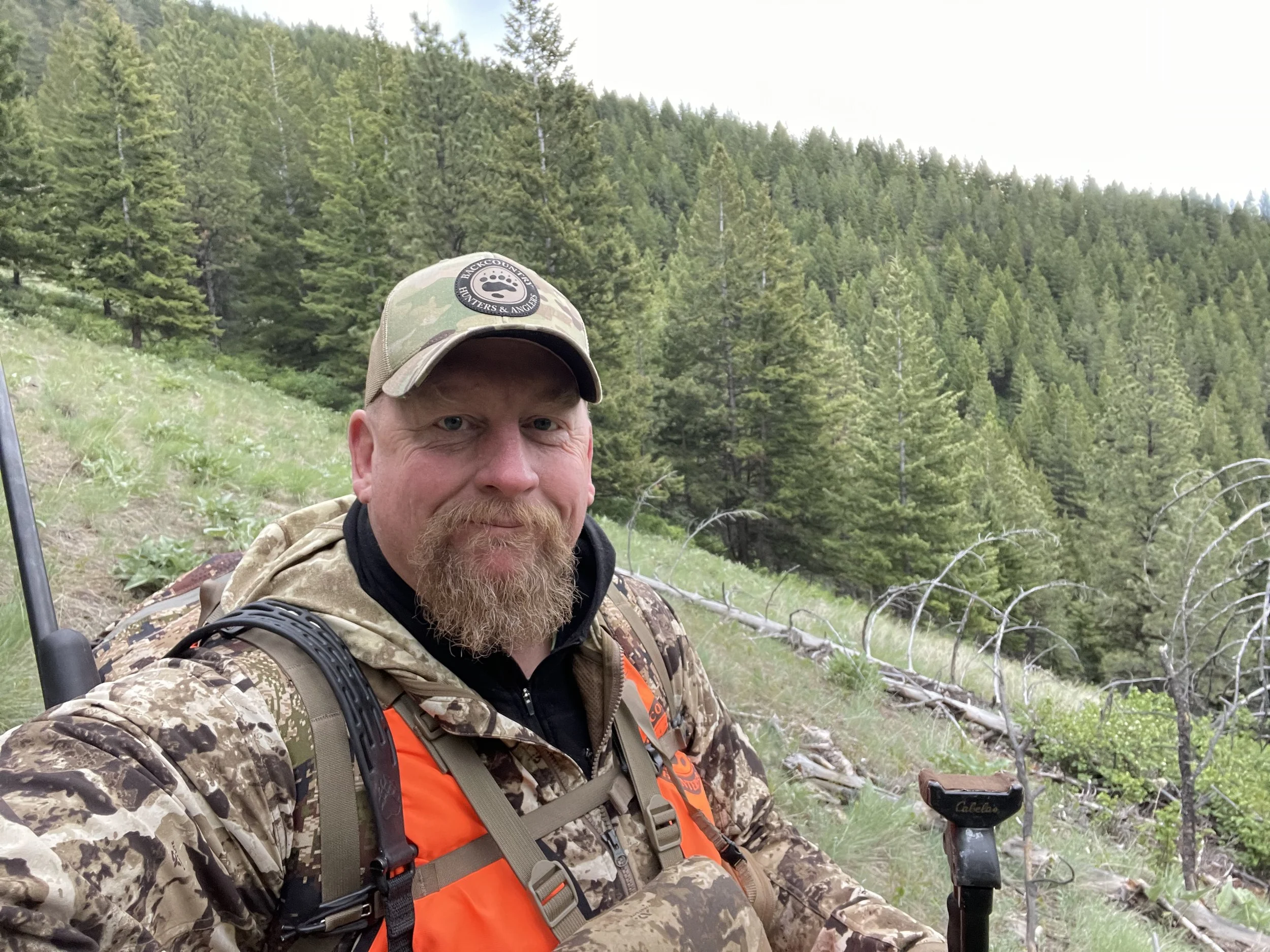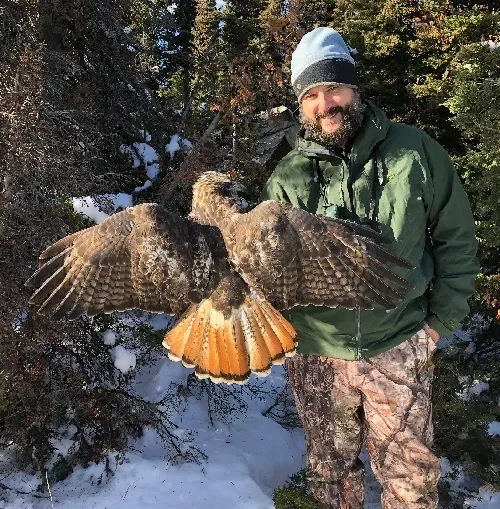
Hunters Lead
By Example:
The North American Lead-Free Partnership was founded on a simple but powerful belief: conservation is most effective when it’s led by those who know the land, the wildlife, and the traditions best—hunters.
Our founders include wildlife biologists, hunter-educators, agency leaders, and conservationists who saw firsthand the effects of lead exposure on wildlife. Rather than pushing for regulations, they envisioned a hunter-driven solution grounded in science, education, and voluntary action.
Today, our mission remains clear: reduce lead exposure in wildlife by promoting the voluntary adoption of lead-free ammunition or other best management practices through trusted outreach, practical tools, and leadership by hunters themselves.
Meet the Team
-
The Oregon Zoo
Leland Brown is a passionate conservationist and the co-founder of the North American Lead-Free Partnership. With deep roots in wildlife management and environmental education, he’s devoted his career to promoting sustainable hunting practices that benefit both people and wildlife.
Early in his work, Leland witnessed the unintended effects of lead ammunition on scavenging species. In response, he became a national leader in voluntary, lead-free outreach, building partnerships with hunters, conservation agencies, and educators to bridge the gap between tradition and modern ecological responsibility.
Under Leland’s guidance, the Partnership has grown into a trusted movement that helps hunters take tangible action to protect ecosystems without sacrificing performance in the field.
-
The Peregrine Fund
Chris Parish is a veteran wildlife biologist, lifelong hunter and angler, and co-founder of the North American Lead-Free Partnership. He has played a pivotal role in condor recovery and raptor protection through more than 20 years of work, most notably leading efforts to address lead poisoning in the California Condor population.
As President and CEO of The Peregrine Fund, Chris has advanced science-based, collaborative conservation by working directly with hunters and shooting sports enthusiasts. His commitment to stakeholder trust and voluntary solutions has helped shift national conversations around non-lead ammunition from regulation to empowerment.
Chris’s leadership of the Partnership continues to inspire a new generation of conservation-minded hunters and outdoor advocates across North America.
-
The Oregon Zoo
Hannah Dinell is a conservation biologist with a passion for working with stakeholders on landscape-scale conservation projects. She joined the Partnership in 2022 with a background in ecology and wildlife management. Hannah completed her graduate work at the University of Arizona, where she focused on interspecific mutualisms. She has conducted work surveying and monitoring wildlife population for government agencies and universities across the western United States.
Hannah supports efforts for the Partnership in the Pacific Northwest, where she engages a broad range of stakeholders including hunters, biologists, landowners, and community members, to promote voluntary, science-informed practices that support healthy ecosystems. As a hunter, Hannah values the role that hunters play in conservation and works to help ensure the tradition is sustained in the future. In her free time, she enjoys hunting, trail running, and exploring wild places.
-
Institute for Wildlife Studies
Micah Dungey is a life-long hunter who followed his passion into conservation, wildlife management, and environmental education work. He is the Non-Lead Outreach Coordinator for the Institute for Wildlife Studies, who is one of the founding partners of the North American Lead-Free Partnership.
Micah works to provide hunters with the information they need to make an informed decision to switch to modern hunting ammunition. His efforts expand and reinforce the long and historical conservation heritage of hunters. In addition to the focus on modern hunting ammunition, Micah also spends time as a volunteer hunter education instructor, where he uses his experience in environmental education to help new hunters be as successful, safe, and informed as possible.
-
The Peregrine Fund
Adam Miller is a committed advocate for hunters and wildlife conservation and is the Northeast Program Manager for the North American Lead-Free Partnership. From bats in the Eastern U.S, Pacific salmon in Alaska, to game wildlife species in the Northeast, Adam brings a diverse, 20-year background and perspective to the Partnership.
As a fish and wildlife professional working with Vermont Fish & Wildlife Department, who coincidentally was listening to a hunting podcast on a road trip to his hometown in Pennsylvania, Adam learned of the efforts of the Partnership to work with hunters to promote ammunition choices and avoid lead poisoning in scavenging wildlife. It didn’t take Adam long to reach out to the Partnership to organize efforts in Vermont and initiate conversations with hunters in the Northeast.
-
The Peregrine Fund
Vince Slabe is a scientist at The Peregrine Fund and studies the interactions between birds of prey and energy development. Prior to his employment at TPF, Vince developed multiple lead-free ammo incentive programs at Conservation Science Global with the goal of offsetting eagle fatalities from energy development.
Vince is proud to continue working on these programs in his role at TPF with the added guidance and educational support of the Partnership. Prior to this work, Vince completed his PhD at West Virginia University and this work resulted in multiple scientific publications documenting rates of lead exposure in raptors. In 2022, Vince’s work highlighting the rate of lead poisoning of bald and golden eagles at a nationwide scale was published in the journal Science. Vince lives in Bozeman, MT with his wife and three children.
-
The Peregrine Fund
With a career in wildlife conservation management that spans nearly 30 years, Neil brings experience in wildlife restoration and policy influence, in such species as bighorn sheep and bison, as well as wildlife disease mitigation through education and stakeholder collaboration.
During his tenure as the Wildlife Director for the Nez Perce Tribe, he and his team developed and implemented an incentive based lead-free hunting program for Tribal members. Through informative education, Tribal hunters welcomed this program.
Neil is also a passionate lifelong hunter and has hunted with archery equipment exclusively for the past 35 years, taking nearly 200 big game animals throughout North America as well as internationally, with bow and arrow. Many of these animals are record-book qualifiers.
-
The Peregrine Fund
Paul Juergens is a biologist and The Peregrine Fund’s Vice President of Conservation for Domestic Programs.
Paul is also a life-long hunter and angler and a passionate practitioner of falconry; a pursuit that has had a major influence on his career and his advocacy for hunting and conservation. A good part of his career has been spent working on projects involving the study and management of Northern Aplomado Falcons and Golden Eagles. He also assists with other programs to include the North American Lead-Free Partnership. While now spending more time in an administrative role, he still contributes a significant amount of time and energy towards boots on the ground, hands-on, science-based conservation with an emphasis on building partnerships and working with others to find pragmatic solutions to problems; an approach that he sees necessary to ensure lasting and sustainable outcomes for conservation. Paul has worked for The Peregrine Fund for over 20 years and is based in SW New Mexico.
Founded in 2018, the Partnership emerged from a shared mission: to conserve wildlife and ecosystems through education and collaboration. As data mounted on the risk of spent lead ammunition and fishing tackle, our founders recognized an opportunity to act, not with mandates, but through voluntary leadership.
Rooted in the conservation legacy of hunters and anglers, our work honors tradition while embracing innovation. By encouraging choices that keep lead out of wildlife food chains, like using lead-free hunting ammunition, and supporting those who make those choices, we aim to reduce unintended lead exposure in wildlife and protect the health of our landscapes for generations to come.
Our Story
The Goal:
Reducing Lead Exposure in Wildlife
We promote hunters’ voluntary choice to minimize unintended harm to wildlife from lead-based hunting ammunition.
Supporting Wildlife Conservation through Hunting
Hunters are conservation leaders, and under the North American Model, have been for the last century. Our work focuses on supporting and empowering this community to lead sustainable change from within to guarantee the future of hunting.
Ensuring Ecosystem Health for Future Generations
Through education, outreach, and collective action, we strive to conserve wildlife so that future generations can enjoy the same outdoor traditions we cherish today.
FAQs
-
Switching to lead-free ammunition is crucial for both wildlife conservation and ecosystem health. Conventional lead ammunition can fragment as it passes through an animal, leaving behind tiny lead particles in game carcasses. Scavenging wildlife, such as eagles, condors, and other predators, may ingest these fragments, leading to lead poisoning and even death. By choosing lead-free options, hunters help reduce unintended harm to wildlife, supporting healthier ecosystems and preserving biodiversity. Moreover, using lead-free ammunition aligns with ethical hunting practices and demonstrates a commitment to sustainable wildlife management.
-
Yes, lead-free ammunition is highly effective and often matches or exceeds the performance of traditional lead ammunition. Modern lead-free bullets, such as those made from copper or copper alloys, offer excellent ballistic performance, including reliable expansion, deep penetration, and high weight retention. Many hunters have successfully transitioned to lead-free ammunition without compromising accuracy or lethality. Field tests and scientific studies have shown that lead-free options are suitable for hunting a wide range of game species, providing clean and ethical kills.
-
Lead-free ammunition is increasingly available at sporting goods stores, outdoor retailers, and online shops. Brands like Barnes, Hornady, Federal Premium, and Nosler offer a variety of lead-free options for different calibers and firearm types. While lead-free ammunition can be slightly more expensive than some traditional lead ammo, prices have become more competitive as demand and production have increased. Investing in lead-free ammunition not only supports wildlife conservation but also contributes to a healthier environment, making it a valuable choice for conscientious hunters.
-
In most cases, you do not need significant modifications to your firearm to use lead-free ammunition. However Any time you change your ammunition, it’s important to re-zero your rifle before heading into the field. Spend time at the shooting range to familiarize yourself with the new ammunition’s performance, ensuring accuracy and confidence during your hunt. Always consult your firearm manufacturer or a professional gunsmith if you have specific concerns.



















